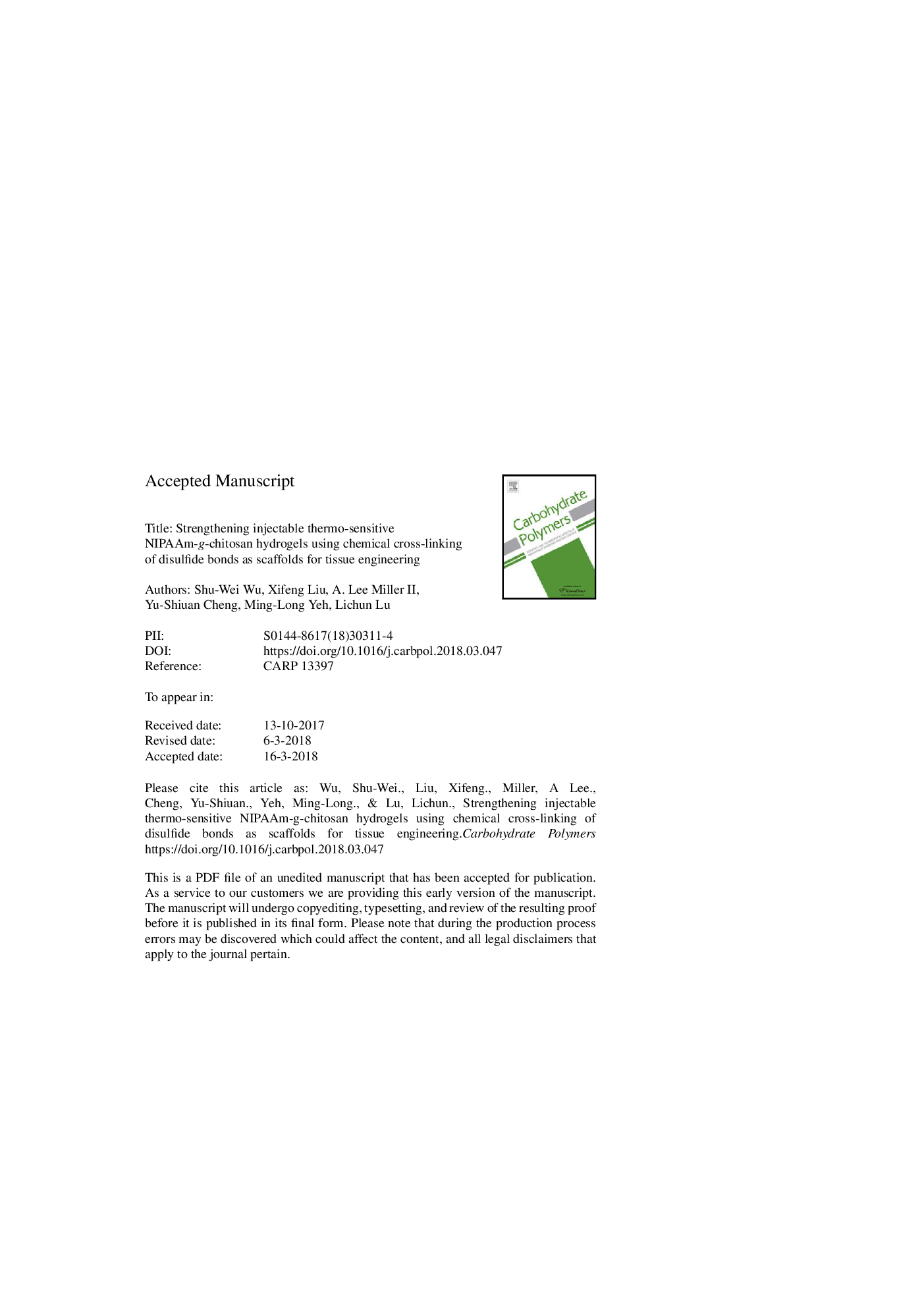| Article ID | Journal | Published Year | Pages | File Type |
|---|---|---|---|---|
| 7782827 | Carbohydrate Polymers | 2018 | 17 Pages |
Abstract
In the present study, we fabricated non-toxic, injectable, and thermo-sensitive NIPAAm-g-chitosan (NC) hydrogels with thiol modification for introduction of disulfide cross-linking strategy. Previously, NIPAAm and chitosan copolymer has been proven to have excellent biocompatibility, biodegradability and rapid phase transition after injection, suitable to serve as cell carriers or implanted scaffolds. However, weak mechanical properties significantly limit their potential for biomedical fields. In order to overcome this issue, we incorporated thiol side chains into chitosan by covalently conjugating N-acetyl-cysteine (NAC) with carbodiimide chemistry to strengthen mechanical properties. After oxidation of thiols into disulfide bonds, modified NC hydrogels did improve the compressive modulus over 9 folds (11.4â¯kPa). Oscillatory frequency sweep showed a positive correlation between storage modulus and cross-liking density as well. Additionally, there was no cytotoxicity observed to mesenchymal stem cells, fibroblasts and osteoblasts. We suggested that the thiol-modified thermo-sensitive polysaccharide hydrogels are promising to be a cell-laden biomaterial for tissue regeneration.
Related Topics
Physical Sciences and Engineering
Chemistry
Organic Chemistry
Authors
Shu-Wei Wu, Xifeng Liu, A. Lee II, Yu-Shiuan Cheng, Ming-Long Yeh, Lichun Lu,
